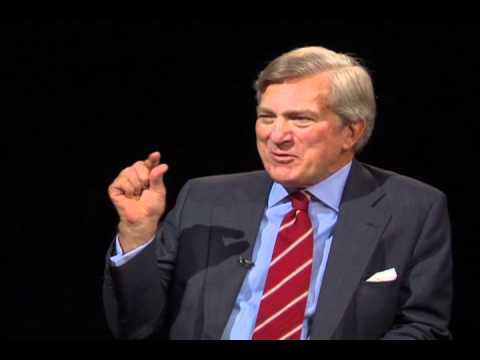Hours after When Print Was (Still) King was posted yesterday, Jim Hoge died at 87. He was Warren Hoge’s brother and among those who knew him well, as I did, astonishing. Why? Because a man of so much elegance —and boy was he handsome — was on the merits of his combined journalism, integrity, and friendship non pareil.
He chaired the Human Right Watch board and was a founder and later chair of the International Center for Journalists. I was on both those boards with him. Heading NGOs given the scale of issues they deal with, plus the challenges of managing staff and donors demands Olympic levels of leadership skill. Jim won multiple golds.
Our closest association was in his brilliant years as editor of the super self-aware Foreign Affairs magazine of the Council on Foreign Relations. Here is one episode.
In 2001, PublicAffairs was approached on behalf of several of the most prominent American China scholars about publishing a compilation of secret top-tier documents describing the decision to use maximum force to end the democracy protests in Beijing’s Tiananmen Square. The official who brought them out of the country would remain anonymous.
The scholars led by Columbia Professor Andrew Nathan were confident of their veracity — and to publish the book, PublicAffairs surrounded the papers with explanations of the vetting process. Publication was global front-page news and the “compiler” as we called him was featured in shadows on 60 Minutes.
Along the way, Jim told me he wanted Foreign Affairs to be the place where the papers were first excerpted. Jim’s authority at the magazine was complete — except that Foreign Affairs and the CFR were not normally the place for the release of smuggled, secret documents.
Our mutual friend Leslie Gelb (another remarkable gent in our professional cohort) was the Council’s President and knew that there major members of his board with the kind of business interests in the emerging China that could be impacted by its revelations.
Hoge, Gelb and I suspended our norms of conviviality to reach the decision to publish.
The outrage from two board members in particular was immediate. There were demands for Jim’s resignation or at least limiting his authority to publish whatever he wanted.
The fracas went to the board. I was not present, of course, and when it was over Jim, Les and I never really told each other valarous tales of our fortitude. My recollection, however, is that two board members, the late Garrick Utley of NBC and George Soros used their considerable clout (in journalism and, I suspect, funding) to protect Jim and Foreign Affairs.
In the last hours of his life, Jim’s formidable wife Kathleen Lacey and Jim’s family gathered at his bedside. She texted me that they were telling stories waiting for the end. The Tiananmen Papers saga is mine to add.







OMG … three weeks after the death of his remarkable brother, Warren!
The stars cross.
Avec tristesse profond!
d.